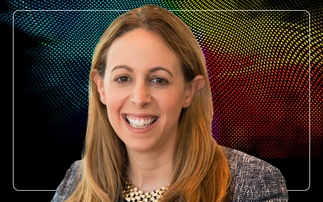Our population is living longer and, unlike previous generations, individuals must take responsibility for funding their later lives themselves. This coincides with a climate crisis that is damaging the world into which we will all retire. In combination, these ultimately put the standard of living people have all come to expect in jeopardy.
The response to the climate crisis will define our generation and affect generations to come. How we address this will shape the future of the world. That's why at Royal London we've committed to:
- Achieve Net Zero across our investment portfolio by 20501.
- Reduce out carbon equivalent emissions from the investment portfolio by 50% by 20301, while also developing climate solutions that enable customers to invest in the low carbon transition.
- Net Zero direct operational emissions by 20302.
As Chief Executive Barry O'Dwyer says; "We all want to spend our lives in a climate where our homes aren't put at risk by extreme weather events and we have access to sustainable sources of food. So customers' money must be invested responsibly in a way that supports the changes needed to protect the planet."
"This is not the time to be passive. The biggest way Royal London can make a difference in the fight against climate change is through an active investment approach. We are engaging with the largest carbon emitters in our investment portfolio to influence their behaviours and to ensure they have ‘Just Transition3' plans in place that consider the impact the changes will have on society."
But this alone is not enough. To help customers take responsibility for funding their later lives, Royal London is championing impartial advice and the need to build financial resilience is critical. Following the acquisition of Wealth Wizards earlier this year, we've committed to working with financial advisers and pension schemes to broaden access to technology.
"When it comes to advice, we believe impartial financial advice is the gold standard. With more and more people needing support, we are working with advisers to offer our technology to help them scale the provision of impartial advice and guidance so a broader range of individuals can benefit from access. We want to offer this technology to help customers whether or not advisers ultimately recommend a Royal London product."
We'll also be calling for decisive collective action, asking regulators to consider climate change alongside product outcomes and the government to promote policies that reward those who act responsibly and do the right thing. To do this we'll work with others to provoke action at the scale and pace needed to overcome the challenges.
We're mutually responsible for delivering a good standard of living for this and future generations.
To see more about how you can build your clients' financial resilience, while they invest in a sustainable future visit adviser.royallondon.com/togetherforgood
Notes:
-
The term Net Zero means achieving a balance between the amount of greenhouse gases emitted into the atmosphere and the amount removed from it. The commitment is based on the expectation that governments and policy makers will deliver on commitments to achieve the 1.5°C temperature goal of the Paris Agreement. It also assumes this action does not contravene Royal London's fiduciary duty to external investors. The commitment is baselined on the year 2020. It includes assets that are controlled by the Royal London Mutual Insurance Society Limited and are managed on its behalf by Royal London Asset Management Limited (RLAM). This includes the regulated investment funds managed by RLAM. It excludes segregated mandates managed by RLAM on behalf of its external clients.
-
Net Zero direct operational emissions, with only residual offsetting. The commitment is baselined on the year 2019, as carbon emissions were significantly reduced by the impacts of Covid-19 in 2020. By 2025 the company is aiming to reduce its direct emissions by 60%, to be using 100% renewable electricity across its offices and to reduce its internal paper use by 90% and external use by 50%. In addition, it is committed to reducing its business travel carbon footprint by 50% going forward. It is also working with its suppliers to measure and manage its indirect operational emissions.
-
The concept of the Just Transition aims to ensure that social issues are taken into account in moving to a low carbon economy. A just transition ensures climate action also supports an inclusive economy and avoids exacerbating existing injustices, or creating new ones. In simple terms, ensuring that the people affected are taken into account.












